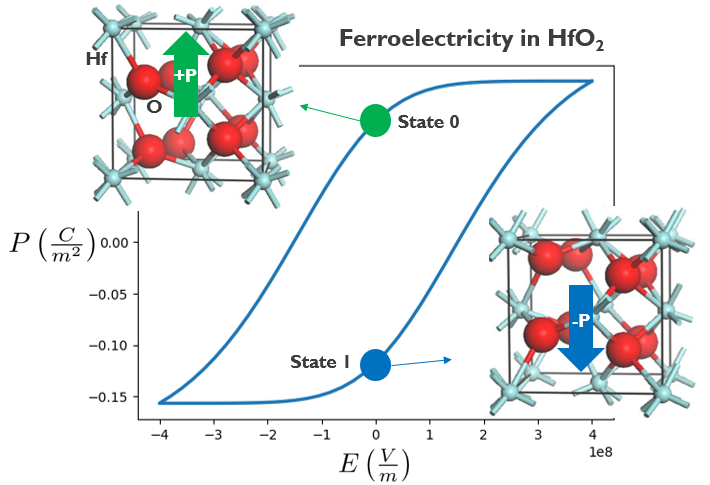Reliability of nanoscale ferroelectrics
Leuven | More than two weeks ago
Ferroelectricity is a relatively new subject, only discovered in 1920 when studying Rochelle salts (Joseph Valasek). It studies materials with a permanent polarization that produce a characteristic hysteretic response to an external electric field. The use of a ferroelectric layer in microelectronics first appeared in patents around the 1950s. Currently, the main interest is in nanoscale ferroelectric materials for future memory technologies where the hysteretic response is used to create two (or more) distinct memory states.
When applying a large enough electric field the spontaneous polarization can change direction, in doing so one can switch between the two memory states. However, this large field will also change other oxide properties, it can for instance result in charge injection (trapping), create defects or change the phase content of the material thereby altering its ferroelectric properties. The charge in the oxide will alter the device electrostatics and therefore the control over the polarization and memory states.
A better understanding of ferro materials and their interactions within future devices is critical for their technological advancement. This involves studying the ferroelectric response to non-idealities and external stimuli such as surface effects (nanoscale), temperature changes, phase transformations, charge trapping or ion exchange. As polarization changes can happen in the nanosecond range, one of the challenges is to develop characterization techniques on shorter (microsecond) timescales as well.
What will you do?
- Study ferroelectrics for future memory technology: e.g. ferro capacitors (e.g. in FeRAM), ferro tunnel junctions (FTJ), combinations with oxide semiconductors or in superlattice structures.
- Study the evolution of ferroelectric hysteresis with field cycling to understand wake-up, endurance, fatigue (respectively the increase, steady-state and decrease of ferro response with device lifetime).
- Modelling of the ferroelectric response to external stimuli with a focus on the defect structure (defect spectroscopy).
- Construct new characterization techniques for performance/reliability related to ferro devices and their interaction with defects on short timescales.
- Link modelling and experimental data.
- Keep an eye out for new ferro-related technologies, e.g. ferro flash or antiferroelectric capacitors for energy storage
Who are you?
- Physics or chemistry/engineering with a strong emphasis on physics
- Knowledge of semiconductor physics
- Knowledge of programming and simulations
References: B. Truijen et al. IRPS 2022, B.J. O’Sullivan et al. IRPS 2022, M.I. Popovici et al. IEDM 2022.

Required background: Physics or chemistry, engineering with a strong emphasis on physics
Type of work: 40% modelling, 40% experimental, 20% literature
Supervisor: Jan Van Houdt
Daily advisor: Brecht Truijen, Yusuke Higashi
The reference code for this position is 2025-071. Mention this reference code on your application form.
